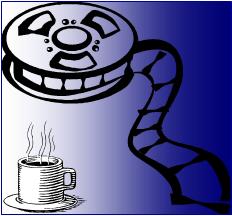

|
 |
The Great Waltz (1938) _____ 7.5/10
|
Please go to the new Coffee Coaster site implemented more gracefully in Wordpress. This page: http://brianrwright.com/CoffeeCoasterBlog/?p=3067 |
Luise Rainer ... Poldi Vogelhuber
Fernand Gravey ... Johann 'Schani' Strauss II
Miliza Korjus ... Carla Donner
Hugh Herbert ... Julius Hofbauer, Music Publisher
Lionel Atwill ... Count Anton 'Tony' Hohenfried
Carla Donner: You probably deserve him more than I do, but he's going with me.
Back into the wayback machine, another reason not to give up on your basic cable with Turner Classic Movies (TCM) or to make sure one of your Netflix favorites groupings is Metro Goldwyn Mayer (MGM) musicals. I'm not sure this particular movie is regarded as a musical per se: it's more of a children's story about Johann Strauss the Younger, who plays across from this ingenue who has this simply indescribable operatic voice (and a bubbly, fetching personality).
The Great Waltz begins with the early career of the actual composer, and there are some parallels between the movie and the life of Johann Strauss. But the movie is fictional, particularly with respect to Strauss's loves... and most particularly with respect to his love and infatuation with supposedly a leading opera celebrity of the time: Carla Donner (Miliza Korjus). So, frankly, this movie was a Netflix pick by my mom, who insisted we watch it the last time I went over there.
So I slip it into the DVD player and prepare myself for the old-style linear, black-and-white, stage-set, and—from a typically modern perspective —corny storyline. Even on the new flat screen HD TVs—her's is a Best-Buy bargain 42-incher—the movie looks, well, old. And the sound quality based on the soundtrack of the original 1938 16mm film can be only so good, certainly not stereophonic. Everything goes along as expected until the young Strauss, looking to compose and play music for a living, runs into a legendary soprano named Carla Donner.
I don't remember exactly when she starts singing, but first she's captivated by the music of the struggling composer. Their eyes meet, and she immediately whisks him away into a private chamber where she lets loose a couple of simple tune fests, sung in perfect accompaniment to his virtuoso violin. He's captivated back. And frankly, I'm struck with how perfectly Miliza Korjus' voice comes through the decades of old recording and playback technology.
I wish I had been on the set.
There's a scene in The Shawshank Redemption, where Andy Dufresne (Tim Robbins) locks himself in the warden's office and lays an LP recording of the "Duettino–Sull'Aria" from Mozart's Marriage of Figaro on the warden's phonograph player. Then he turns on the public address microphone so this ecstatic women's duet wafts in high volume over the prison yard for a full three minutes! Go ahead and click on this link for the YouTube clip and crank up the sound. And thus sayeth the lord: you will know what joy is:[1]
It's as the Morgan Freeman character, Red, comments:
"It was like some beautiful bird flapped into our drab little cage and made those walls dissolve away, and for the briefest of moments, every last man in Shawshank felt free."
Well, I'm not claiming as much pure joy to be derived from the particular songs from Korjus in The Great Waltz, but you certainly can experience the same appreciation of the vocal excellence. In the case of Miliza Korjus' performances in this movie, the context is invariably more cheery and light. But no less appealing in tonal quality. There is definitely something about such music: it lifts the soul. And in the case of a little movie like this one, it makes the film.
There are some other reasons to check out the movie, which was made by the MGM studios in 1938, just before the MGM color releases of Gone with the Wind and The Wizard of Oz, in 1939. The Great Waltz won the Oscar for cinematography and Miliza Korjus was nominated for best supporting actress. It was a big enough movie in its day.
Aside from the thin plot of Johann Strauss pursuing his creative and romantic interests—and same deal for Ms. Carla Donner—there's a nod to the revolutionary spirit of the time. Mid-nineteenth century in Europe saw several popular uprisings against the monarchies and toward some eclectic combination of liberal and socialist democratic ideals. Austria was one of the countries experiencing the heady spirit of revolution, and that becomes a backdrop for the story... though certainly not an integral part.
A few of the waltzes and marches fit in with the ideas of freedom, and the instrumental music and dance, especially dance, in the movie is at least in the same ballpark with Korjus' singing. (It occurred to me for the first time, while watching the movie, that the waltz is the primary form of dance designed for symphonic orchestras. How about that. Duh.)
But Miliza Korjus definitely makes the film special. Not only her marvelous voice, but her personality shines through. From what I've read the 1920s in America represented a welcome thawing in the repressive Puritanism before and after, but some of the healthy sensuality from the 20s films must have made it into the late 30s, because Korjus exudes a sexual assertiveness and genuine woman's confidence in her mind and body (and their pleasures) ahead of (and behind) its time. She's suis generis. Check out the IMDb info on her; she lived at the center of the musical social scene in Hollywood for quite some time. Bravo.
###
[1] I promise, for anyone whose heart beats to the cause of freedom—and happens to suffer from dry-eye syndrome—the first two bars of the "Duettino–Sull'Aria" are an immediate and surefire cure.
Law Enforcement Against Prohibition

 |
 |
|||
| |